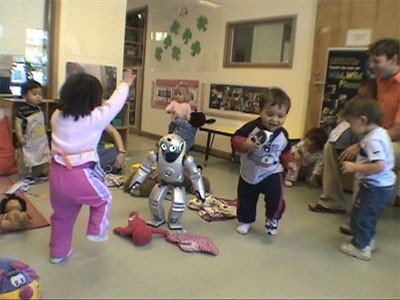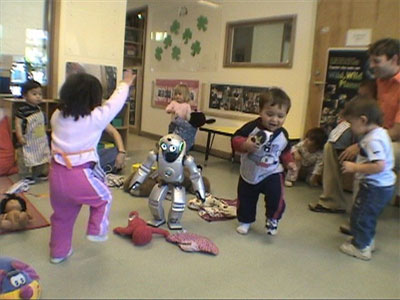Why Do Toddlers Love Robots?


An article appearing in November's issue of the IEEE Spectrum (a magazine written by and for electrical engineers), asks the question, "Why do toddlers love robots?". The answer, it seems, lies not in their cute and fuzzy appearance, but more in their ability to be unpredictable and resond to interaction. To arrive at this conclusion, a Sony Qrio robot was placed in the company of a group of 10 - 24 month old children, and the children were observed to see how interested they were in the robot. "The researchers found that the key to Qrio’s popularity was its ability to move and respond to the children in a way that was closely timed to the activity around it."
The research is being done by Fumihide Tanaka as part of a project seeking to develop robotic teacher's assistants (I'm going to ignore just how scary this sounds). Researchers found that since the children were very young, responding to emotions was moe important that mimicing true human behavior. They also found that if Qrio's behaviors were limited and predictable, the once oh-so-popular robotic playmate was soon discarded.
Thanks for helping to keep our community civil!
This post is an advertisement, or vandalism. It is not useful or relevant to the current topic.
You flagged this as spam. Undo flag.Flag Post


